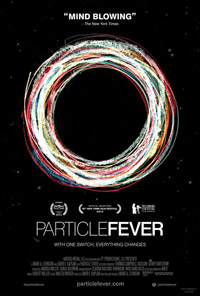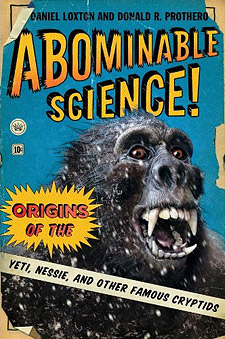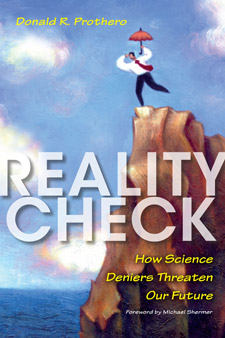Stephen Hawking said philosophy is dead. Plato would disagree, says the acclaimed philosopher and novelist Rebecca Goldstein, who provides a dazzlingly original plunge into the drama of philosophy, revealing its hidden role in today’s debates on religion, morality, politics, and science. Philosophy is not obsolete, and the ancient questions that Plato asked are still relevant in the age of cosmology and neuroscience, crowd-sourcing and cable news. Imagine that Plato came to life in the 21st century and embarked on a multicity speaking tour. How would he handle the host of a cable news program who denies there can be morality without religion? How would he mediate a debate between a Freudian psychoanalyst and a tiger mom on how to raise the perfect child? How would he answer a neuroscientist who, about to scan Plato’s brain, argues that science has definitively answered the questions of free will and moral agency? What would Plato make of Google, and of the idea that knowledge can be crowd-sourced rather than reasoned out by experts? With a philosopher’s depth and a novelist’s imagination and wit, Goldstein probes the deepest issues confronting us by allowing us to eavesdrop on Plato as he takes on the modern world. Order Plato at the Googleplex from Amazon. A book signing will follow the lecture.
Tags: crowd-sourcing, neuroscience, philosophy, PlatoLectures
-
Distinguished Lecture Series
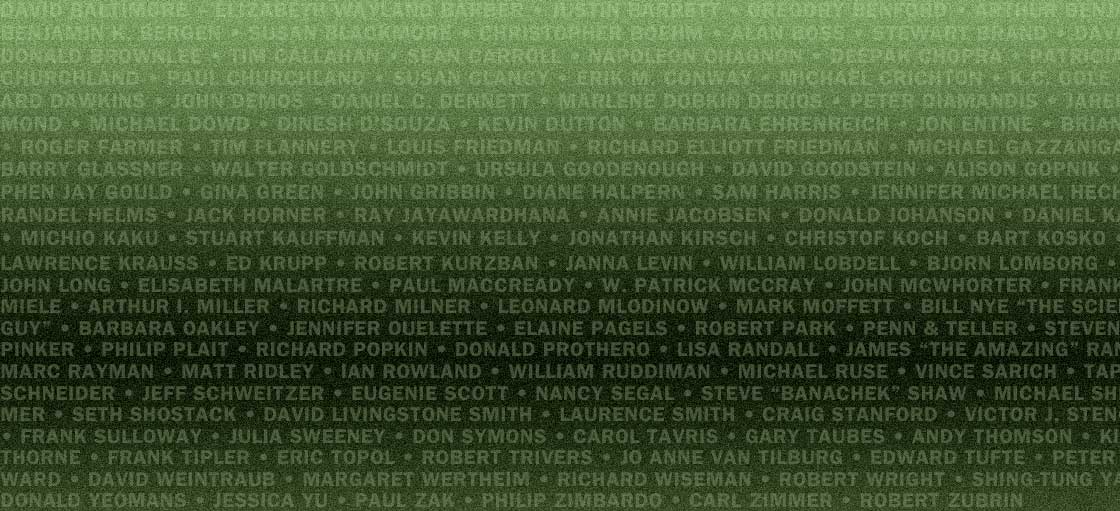
Distinguished Science Lecture Series Archives
Dr. Rebecca Goldstein — Plato at the Googleplex: Why Philosophy Won’t Go Away
- Event Date: Sunday, June 8, 2014 at 2:00 pm
- Speaker: Dr. Rebecca Newberger Goldstein
Humble Before the Void: Western Science Meets Tibetan Buddhism
- Event Date: Sunday, May 18, 2014 at 2:00 pm
- Speaker: Dr. Chris Impey
Surprise, delight, and unbridled mirth are not commonly encountered in the science classroom. But in the foothills of the Himalaya, at a program to teach cosmology to Buddhist monks by the University of Arizona astronomer Chris Impey, they were daily occurrences. Working with this unique audience spurred new ways of thinking about the universe and the art of teaching. This talk takes listeners on an adventure at the nexus of science, religion, philosophy, and culture. Dr. Impey studies quasars and distant galaxies and is the author of How it Began, How it Ends, and The Living Cosmos, and has won 11 teaching awards. Order Humble Before The Void from Amazon.
Followed by a screening of the documentary film Particle Fever
“Mind Blowing”
—The New York Times
Particle Fever follows the inside story of six brilliant scientists seeking to unravel the mysteries of the universe, documenting the successes and setbacks in the planet’s most significant and inspiring scientific breakthrough. Read more about the film.
Tags: Buddhist monks, Chris Impey, cosmology, science and religionTrying Not to Try: The Art and Science of Spontaneity
- Event Date: Sunday, April 13, 2014 at 2:00 pm
- Speaker: Dr. Edward Slingerland
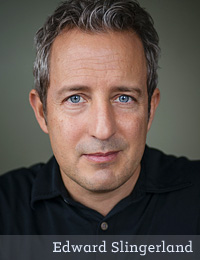
WHY IS IT ALWAYS HARD to fall asleep the night before an important meeting? Or be charming and relaxed on a first date? What is it about a politician who seems wooden or a comedian whose jokes fall flat or an athlete who chokes? In all of these cases, striving seems to backfire. In Trying Not To Try, Edward Slingerland explains why we find spontaneity so elusive, and shows how early Chinese thought points the way to happier, more authentic lives. We’ve long been told that the way to achieve our goals is through careful reasoning and conscious effort. But recent research suggests that many aspects of a satisfying life, like happiness and spontaneity, are best pursued indirectly. Through stories of mythical creatures and drunken cart riders, jazz musicians and Japanese motorcycle gangs, Slingerland effortlessly blends Eastern thought and cutting-edge science to show us how we can live more fulfilling lives. Order Trying Not to Try from Amazon.
Tags: Edward Slingerland, happiness, spontaneityThe Son Also Rises: Surnames and the History
of Social Mobility
- Event Date: Sunday, March 16, 2014 at 2:00 pm
- Speaker: Dr. Gregory Clark
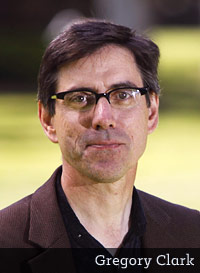
HOW MUCH OF OUR FATE is tied to the status of our parents and grandparents? How much does this influence our children? More than we wish to believe. While it has been argued that rigid class structures have eroded in favor of greater social equality, The Son Also Rises proves that movement on the social ladder has changed little over eight centuries. Using a novel technique—tracking family names over generations to measure social mobility across countries and periods—renowned economic historian Gregory Clark reveals that mobility rates are lower than conventionally estimated, do not vary across societies, and are resistant to social policies. The good news is that these patterns are driven by strong inheritance of abilities and lineage does not beget unwarranted advantage. The bad news is that much of our fate is predictable from lineage. Clark argues that since a greater part of our place in the world is predetermined, we must avoid creating winner-take-all societies.
Order The Son Also Rises from Amazon.
Tags: Gregory Clark, social equality, social influence, social mobility, social status, The Son Also RisesNeanderthal Man: In Search of Lost Genomes
- Event Date: Sunday, March 2, 2014 at 2:00 pm
- Speaker: Dr. Svante Pääbo
Svante Pääbo is the founder of the field of ancient DNA and is the director of the department of genetics at the Max Planck Institute for Evolutionary Anthropology in Leipzig. In Neanderthal Man he tells the story of his mission to answer the question of what we can learn from the genes of our closest evolutionary relative, culminating in his sequencing of the Neanderthal genome in 2009. We learn that Neanderthal genes offer a unique window into the lives of our hominin relatives and may hold the key to unlocking the mystery of why humans survived while Neanderthals went extinct. Drawing on genetic and fossil clues, Pääbo explores what is known about the origin of modern humans and their relationship to the Neanderthals and describes the fierce debate surrounding the nature of the two species’ interactions.
Photo of Svante Pääbo by Frank Vinken
Order Neanderthal Man from Amazon.
You play a vital part in our commitment to promote science and reason. If you enjoyed this Distinguished Science Lecture, please show your support by making a donation.
Tags: evolution, genome, neanderthal manWizards, Aliens, and Starships: Physics and Math
in Fantasy and Science Fiction
- Event Date: Sunday, February 16, 2014 at 2:00 pm
- Speaker: Dr. Charles Adler
From teleportation and space elevators to alien contact and interstellar travel, science fiction and fantasy writers have come up with some brilliant and innovative ideas. Yet how plausible are these ideas? Which concepts might actually happen, and which ones wouldn’t work at all? A professor of physics at St. Mary’s College of Maryland, Adler delves into the most extraordinary details in science fiction and fantasy—time warps, shape changing, rocket launches, and illumination by floating candle—and shows readers the physics and math behind the phenomena. From the works of Ursula K. Le Guin to Star Trek and Avatar, Adler considers what might become reality. He examines space travel and wonders why it isn’t cheaper and more common today, and discusses exoplanets and how the search for alien life has shifted from radio communications to space-based telescopes. He concludes by investigating the future survival of humanity and other intelligent races.
Order Wizards, Aliens, and Starships from Amazon.
Tags: aliens, exoplanets, interstellar travel, physics, science fiction, teleportation, time travelMe, Myself and Why: Searching for the Science of Self
- Event Date: Sunday, January 26, 2014 at 2:00 pm
- Speaker: Jennifer Ouellette
Popular science writer Jennifer Ouellette has tackled math in The Calculus Diaries and physics in both The Physics of the Buffyverse and Black Bodies and Quantum Cats.
In Me, Myself and Why she turns her attention to the science of the self and delivers a fascinating survey of the forces that shape who we are and why we act the way we do. Ouellette acts as both journalist and subject, as she takes a battery of personality tests, has her genes sequenced and an MRI brain scan done, and even goes on her first and only LSD trip, all the while taking the reader along for the ride. As an adoptee, with basic information about her biological parents, Ouellette considers what traits she undeniably has inherited through genetics and what traits she has in common with her siblings (also adoptees) and her parents, which leads to a fascinating discussion on synapses and how the brain is wired and continues to change as we grow older.
Order Me, Myself and Why from Amazon.
Tags: behavioral genetics, brain, science, selfHow To Boldly Go Into Space: An Insider’s Look into How Space Missions are Created, Funded, Built, Launched, and Run
- Event Date: Sunday, December 8, 2013 at 2:00 pm
- Speakers: Dr. Linda Spilker and Dr. Thomas Spilker
Drawing on their decades of work for NASA and the Jet Propulsion Laboratory (JPL) Drs. Linda and Thomas Spilker give us an inside view of what goes into the unmanned space program, from the origin of a space mission, to how the funds are found to finance it, to how the spacecraft is designed and built, and to the launching and running of such a mission, often designed to last for years and even decades. How do you get a spacecraft to Saturn, anyway? Who decides what it should study when it gets there? What happens when something goes wrong? And, as a society, why do we explore the solar system (and beyond) and what do we learn from it? Don’t miss this revealing account of what rocket scientists do.
Dr. Linda Spilker has been a NASA research scientist at JPL for almost 37 years. Since joining JPL in 1977 she has worked on the Voyager project during the flybys of Jupiter, Saturn, Uranus and Neptune. She is currently the Cassini Project Scientist and a Co-Investigator on the Cassini Composite Infrared Spectrometer team. She received her Ph.D. from UCLA in geophysics and space physics.
Dr. Thomas R. Spilker retired last year after 20 years at JPL, and now consults in both the science and engineering aspects of scientific space flight missions. He worked on the Voyager, Cassini, Stardust, and Genesis missions, and currently is a science team co-investigator on the European Space Agency’s Rosetta mission to a comet. He also worked in “Mission Formulation,” or designing new science mission concepts. His Stanford Ph.D. involved radio measurements of planetary atmospheres.
Tags: Jet Propulsion Laboratory, NASA, space missions, spacecraft, unmanned space programAbominable Science! Origins of the Yeti, Nessie, and Other Famous Cryptids & Reality Check: How Science Deniers Threaten Our Future
- Event Date: Sunday, November 17, 2013 at 2:00 pm
- Speaker: Dr. Donald Prothero
Geologist, paleontologist, evolutionary theorist and social activist in the name of science and skepticism, Dr. Donald Prothero talks about his two new books that deal with battles over evolution, climate change, childhood vaccinations, and the causes of AIDS, alternative medicine, oil shortages, population growth, and the place of science in our country. Many people and institutions have exerted enormous efforts to misrepresent or flatly deny demonstrable scientific reality to protect their nonscientific ideology, their power, or their bottom line. To shed light on this darkness, Prothero explains the scientific process and why society has come to rely on science not only to provide a better life but also to reach verifiable truths no other method can obtain.
And on the lighter side, Prothero talks about how large numbers of people believe in demonstrably false phenomena, from UFOs and ESP to Bigfoot and the Loch Ness monster. Even though these fictions have been repeatedly debunked and discredited, they persist in the human imagination and influence our beliefs and our society. Prothero gives an entertaining and educational overview of a variety of cryptids, presenting both the arguments for and against their existence and systematically challenging the pseudoscience perpetuating their myths.
The views expressed by the speaker are solely those of the speaker. The content of this presentation does not necessarily reflect the opinion of the California Institute of Technology and should not be taken as an endorsement.
You play a vital part in our commitment to promote science and reason. If you enjoyed this Distinguished Science Lecture, please show your support by making a donation.
Order the books from Shop Skeptic
Tags: alternative medicine, Bigfoot, causes of AIDS, climate change, ESP, evolution, Loch Ness, oil shortages, population growth, science, UFOs, vaccinationAn Appetite for Wonder—The Making of a Scientist
in Conversation with Michael Shermer
- Event Date: Sunday, October 20, 2013 at 2:00 pm
- Speaker: Richard Dawkins
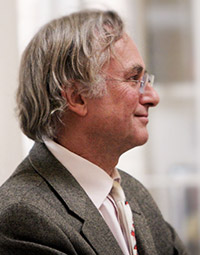
RICHARD DAWKINS’ first book, The Selfish Gene, caused a seismic shift in the study of biology by proffering the gene-centered view of evolution. It was also in this book that Dawkins coined the term meme, a unit of cultural evolution, which has itself become a mainstay in contemporary culture. In An Appetite for Wonder, Richard Dawkins shares a rare view into his early life, his intellectual awakening at Oxford, and his path to writing The Selfish Gene. He paints a vivid picture of his idyllic childhood in colonial Africa, peppered with sketches of his colorful ancestors, charming parents, and the peculiarities of colonial life right after World War II. At boarding school, despite a near-religious encounter with an Elvis record, he began his career as a skeptic by refusing to kneel for prayer in chapel. Despite some inspired teaching throughout primary and secondary school, it was only when he got to Oxford that his intellectual curiosity took full flight, ultimately climaxing in the 2006 publication of The God Delusion, which made Dawkins a world famous public intellectual engaged in social activism.
The views expressed by the speaker are solely those of the speaker. The content of this presentation does not necessarily reflect the opinion of the California Institute of Technology and should not be taken as an endorsement.
Tags: belief, evolution, god delusion, religion, Richard Dawkins, science, selfish geneOdd Couples: Extraordinary Differences between the Sexes in the Animal Kingdom
- Event Date: Sunday, May 19, 2013 at 2:00 pm
- Speaker: Dr. Daphne J. Fairbairn
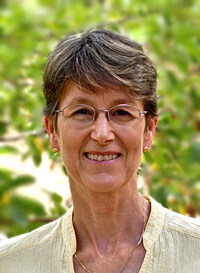
WHILE WE JOKE that men are from Mars and women are from Venus, our gender differences can’t compare to those of other animals. For instance: the male garden spider spontaneously dies after mating with a female more than 50 times his size. Female cichlids must guard their eggs and larvae—even from the hungry appetites of their own partners. And male blanket octopuses employ a copulatory arm longer than their own bodies to mate with females that outweigh them by four orders of magnitude. Why do these gender gulfs exist? This lecture, based on her book, explores some of the most extraordinary sexual differences in the animal world. From the fields of Spain to the deep oceans, evolutionary biologist Daphne Fairbairn uncovers the unique and bizarre characteristics that exist in these remarkable species and the special strategies they use to maximize reproductive success. Fairbairn also considers humans and explains that although we are keenly aware of our own sexual differences, they are unexceptional within the vast animal world.
Tags: Daphne Fairbairn, evolutionary biology, sexual differences in the animal kingdomGive and Take: A Revolutionary Approach to Success
- Event Date: Sunday, April 28, 2013 at 2:00 pm
- Speaker: Dr. Adam Grant
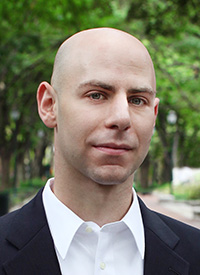
IN THIS LECTURE, based on his book on the psychology of human interactions, organizational psychologist Dr. Adam Grant (the youngest tenured professor at the Wharton Business School) argues that as much as hard work, talent and luck, the way we choose to interact with other people defines our success or failure. Give and Take demolishes the “me-first” worldview and shows that the best way to get to the top is to focus not on your solo journey but on bringing others with you. Grant reveals how one of America’s best networkers developed his connections, why a creative genius behind one of the most popular shows in television history toiled for years in anonymity, how a basketball executive responsible for multiple draft busts turned things around, and how we could have anticipated Enron’s demise four years before the company collapsed—without ever looking at a single number.
Tags: Dr. Adam Grant, give and take, networking, organizational psychology, psychology of human interactions, successTo Boldly Go…Well, You Know:
NASA’s Dawn Mission to the Asteroid Belt
- Event Date: Sunday, March 17, 2013 at 2:00 pm
- Speaker: Dr. Marc Rayman
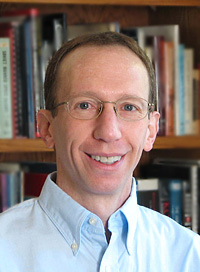
The ambitious Dawn mission, launched in September 2007, is one of NASA’s most remarkable ventures into the solar system. The spacecraft has recently completed a spectacular exploration of Vesta and is now traveling to Ceres; these were among the last uncharted worlds in the inner solar system prior to Dawn. They are the two most massive residents of the main asteroid belt. Ceres is so large that it is included in the category of dwarf planets, along with Pluto. Remnants from the time that planets were formed, Ceres and Vesta hold clues that will help scientists understand the dawn of the solar system. Dawn orbited Vesta from July 2011 to September 2012 and returned astonishing views of this fascinating world. It is the only spacecraft ever to orbit an object in the asteroid belt. Such a mission would be impossible without the use of ion propulsion, a technology that has mostly been in the domain of science fiction, but which was tested extensively on the Deep Space 1 mission, paving the way for Dawn. Dr. Marc Rayman, Dawn’s Chief Engineer and Mission Director at JPL, will describe the Dawn mission and its use of ion propulsion as well as its two exotic destinations. He will also share the excitement and profundity of controlling a spacecraft in deep space.
Tags: Ceres, DAWN mission, Deep Space 1 mission, ion propulsion, JPL, VestaLouder Than Words: The New Science
of How the Mind Makes Meaning
- Event Date: Sunday, February 10, 2013 at 2:00 pm
- Speaker: Dr. Benjamin K. Bergen
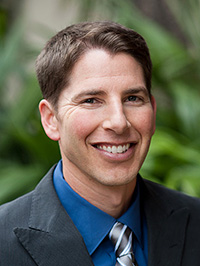
In this Lecture, based on his book, U.C. San Diego cognitive psychologist Benjamin K. Bergen draws together research in psychology, linguistics, and neuroscience to offer a new theory of how our minds make meaning. When we hear words and sentences, we engage the parts of our brain that we use for perception and action—repurposing evolutionarily older networks—to create mental simulations. Embodied simulation, as it’s called, is the reason why it takes time to travel over distance, even in our mind’s eye; why it’s possible for us to become better baseball players by imagining a well-executed swing; and why it’s so hard to talk on cell phones while we’re driving on the highway. Rather than merely calling up abstract ideas to understand language, as others previously argued, our brains engage in a creative act to construct rich mental worlds in which we see, hear, and feel.
Tags: cognitive psychology, embodied simulation, how the mind makes meaning, linguistics, neuroscience, perceptionThe Visioneers: How a Group of Elite Scientists Pursued Space Colonies, Nanotechnologies, and a Limitless Future
- Event Date: Sunday, January 20, 2013 at 2:00 pm
- Speaker: Dr. W. Patrick McCray
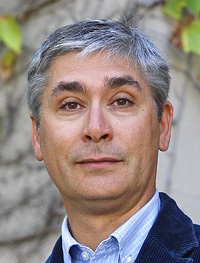
In 1969, Princeton physicist Gerard O’Neill began looking outward to space colonies as the new frontier for humanity’s expansion. A decade later, Eric Drexler, an MIT-trained engineer, turned his attention to the molecular world as the place where society’s future needs could be met using self-replicating nanoscale machines. These modern utopians predicted that their technologies could transform society as humans mastered the ability to create new worlds, undertook atomic-scale engineering, and, if truly successful, overcame their own biological limits. In this lecture, based on the book by the same name, Patrick McCray traces how these visioneers blended countercultural ideals with hard science, entrepreneurship, libertarianism, and unbridled optimism about the future. But the visioneers were not immune to failure—or to the lures of profit, celebrity, and hype. O’Neill and Drexler faced difficulty funding their work and overcoming colleagues’ skepticism, and saw their ideas co-opted and transformed by Timothy Leary, the scriptwriters of Star Trek, and many others. Ultimately, both men struggled to overcome stigma and ostracism as they tried to unshackle their visioneering from pejorative labels like “fringe” and “pseudoscience.” The Visioneers provides a balanced look at the successes and pitfalls they encountered, the dangers that can plague exploratory science, and the importance of radical new ideas that inspire us to support cutting-edge research into tomorrow’s technologies.
Tags: future, nanotechnologies, space colonies, visionariesThe World Until Yesterday: What Can We Learn from Traditional Societies?
- Event Date: Saturday, January 5, 2013 at 2:00 pm
- Speaker: Dr. Jared Diamond
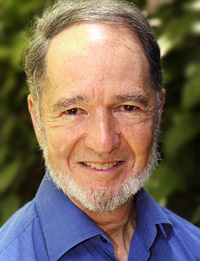
The mega-bestselling author of Guns, Germs, and Steel and Collapse, Dr. Jared Diamond surveys the differences between “traditional” societies and industrial or post-industrial societies, with an eye to the question: what can we learn from the former that can make the world we live in a better place for all of us? Today, citizens of industrial states take for granted metal, writing, airplanes, police and government, overweight people, meeting strangers without fear, heterogeneous populations, and so on. But all those features of modern human societies are relatively new in human history. For most of our past, human societies had none of these things. Today’s traditional societies are in many respects a window onto the human world as it was until a mere yesterday, measured against a time scale of the 6,000,000 years of human evolution. Those societies show us pieces of how all of our ancestors lived for tens of thousands of years. Traditional lifestyles are what shaped us and caused us to be what we are today; all human societies have been traditional for far longer than any society has been modern. Thus, traditional represent thousands of natural experiments in how to construct a human society. They have come up with thousands of solutions to human problems, solutions different from those adopted by our own modern societies. Diamond gives us a first-hand picture of the human past as it has been for millions of years and considers what the differences between that past world and our present one mean for our collective future.
Greece & Magna Graecia 2020
Join Pulitzer-prize-winning author JARED DIAMOND on a 13-day tour exploring the archeological and cultural riches of Athens, the Peloponnese, and Southern Italy October 3–15, 2020, presented by the Skeptics Society and Thalassa Journeys.
Tags: human society, Jared Diamond, natural experiments, post-industrial societies. industrial societiesThe Moral Molecule: The Source of Love and Prosperity
- Event Date: Sunday, December 16, 2012 at 2:00 pm
- Speaker: Dr. Paul Zak
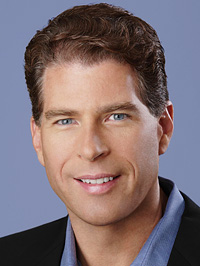
A revolution in the scientific study of good and evil, Dr. Paul Zak’s lecture, based on his book, The Moral Molecule, answers such questions as: Why do some people give freely while others are cold hearted? Why do some people cheat and steal while others you can trust with your life? Why are some husbands more faithful than others—and why do women tend to be more generous than men? Could the key to moral behavior lie with a single molecule? From the bucolic English countryside to the highlands of Papua New Guinea, from labs in Switzerland to his campus in Southern California, Dr. Zak recounts his extraordinary stories and sets out, for the first time, his revolutionary theory of moral behavior.
Tags: Moral Molecule, moralityNear-Earth Objects: Finding Them Before They Find Us
- Event Date: Sunday, December 2, 2012 at 2:00 pm
- Speaker: Dr. Donald Yeomans
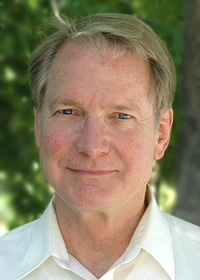
Of all the natural disasters that could befall us, only an Earth impact by a large comet or asteroid has the potential to end civilization in a single blow. Yet these near-Earth objects also offer tantalizing clues to our solar system’s origin, and someday could even serve as stepping-stones for space exploration. In this lecture, Donald Yeomans introduces readers to the science of near-Earth objects—its history, applications, and ongoing quest to find near-Earth objects before they find us. Yeomans takes readers behind the scenes of today’s efforts to find, track, and study near-Earth objects. He shows how the same comets and asteroids most likely to collide with us could also be mined for precious natural resources like water and oxygen, and used as watering holes and fueling stations for expeditions to Mars and the outermost reaches of our solar system.
Tags: near-Earth objectsThe Particle at the End of the Universe:
How the Hunt for the Higgs Boson Leads Us
to the Edge of a New World
- Event Date: Sunday, November 18, 2012 at 2:00 pm
- Speaker: Dr. Sean M. Carroll
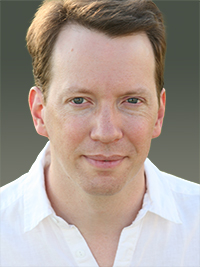
Scientists have just announced an historic discovery on a par with the splitting of the atom: the Higgs boson. The key to understanding why mass exists has been found. In The Particle at the End of the Universe, Caltech physicist and acclaimed writer Sean Carroll takes you behind the scenes of the Large Hadron Collider at CERN to meet the scientists and explain this landmark event. What is so special about the Higgs boson? We didn’t really know for sure if anything at the subatomic level had any mass at all until we found it. The fact is, while we have now essentially solved the mass puzzle, there are things we didn’t predict and possibilities we haven’t yet dreamed. A doorway is opening into the mind boggling, somewhat frightening world of dark matter. We only discovered the electron just over a hundred years ago and considering where that took us—from nuclear energy to quantum computing—the inventions that will result from the Higgs discovery will be world-changing.
Tags: Higgs boson, physics, universeThe Wisdom of Psychopaths: What Saints, Spies, and Serial Killers Can Teach Us About Success
- Event Date: Sunday, October 28, 2012 at 2:00 pm
- Speaker: Dr. Kevin Dutton
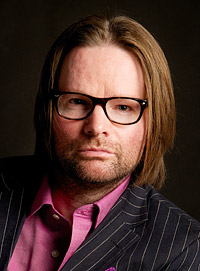
University of Oxford research psychologist Dr. Kevin Dutton reveals that there is a scale of “madness” along which we all sit. Incorporating the latest advances in brain scanning and neuroscience, Dutton demonstrates that the brilliant neurosurgeon who lacks empathy has more in common with a Ted Bundy who kills for pleasure than we may wish to admit, and that a mugger in a dimly lit parking lot may well, in fact, have the same nerveless poise as a titan of industry. Dutton argues that there are “functional psychopaths” among us—different from their murderous counterparts—who use their detached, unflinching, and charismatic personalities to succeed in mainstream society, and that shockingly, in some fields, the more “psychopathic” people are, the more likely they are to succeed. Dutton deconstructs this often misunderstood diagnosis through bold on-the-ground reporting and original scientific research as he mingles with the criminally insane in a high-security ward, shares a drink with one of the world’s most successful con artists, and undergoes transcranial magnetic stimulation to discover firsthand exactly how it feels to see through the eyes of a psychopath.
Tags: Kevin Dutton, psychopathy, transcranial magnetic stimulationSKEPTIC App
Whether at home or on the go, the SKEPTIC App is the easiest way to read your favorite articles. Within the app, users can purchase the current issue and back issues. Download the app today and get a 30-day free trial subscription.

